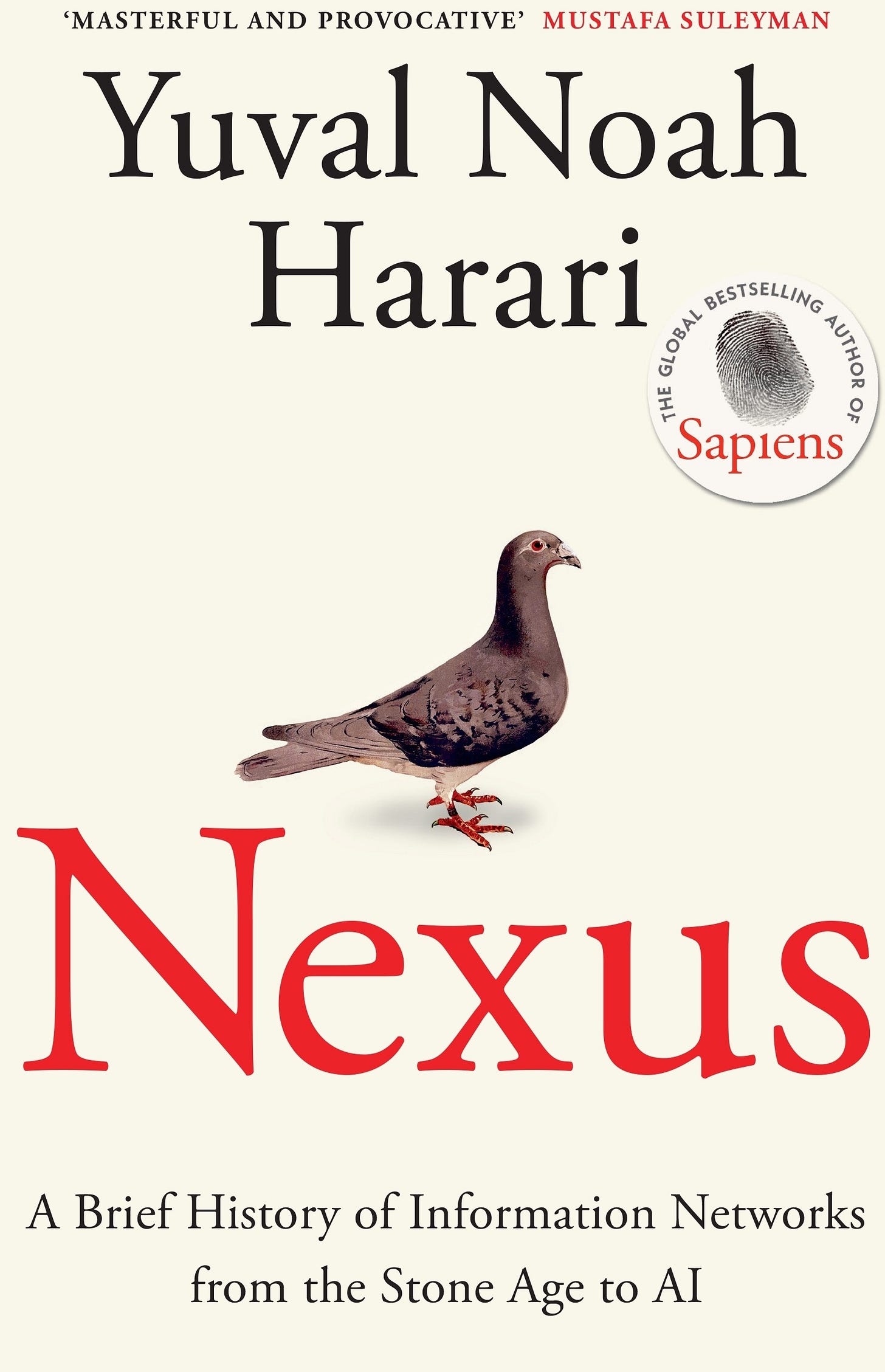The Doom Nexus
Yuval Noah Harari is a historian turned prophet of the End Times. But his latest book's alarmism about artificial intelligence is based on shallow scholarship.
Yuval Noah Harari, Nexus: A Brief History of Information Networks from the Stone Age to AI (Random House)
History doesn’t repeat itself, contrary to popular belief. But some historians do.
The Israeli historian Yuval Noah Harari is a prophet of doom for the Internet Age. Appropriately, his prophecies have a meme-like quality.
Originally a specialist in medieval military history, Harari shot to fame with his first work of soothsaying, Sapiens: A Brief History of Humankind, first published in English in 2014. The book sold over 25 million copies and won endorsements from Barack Obama, Bill Gates and Mark Zuckerberg. At first, I could not fathom why, as the potted history of the world it offered was neither original nor well written. Its conclusions were also deeply depressing: “Global warming, rising oceans and widespread pollution could make the earth less hospitable to our kind,” Harari wrote. “As humans use their power to counter the forces of nature and subjugate the ecosystem to their needs and whims, they might cause more and more unanticipated and dangerous side effects.”
Now I see that it was the doom-mongering, not the history, that really sold. That there is a market for such stuff explains why his next book, Homo Deus: A Brief History of Tomorrow (2017), was essentially the same book, but with less history and more prophecy. Now it was not climate change that would finish humanity off, but the unstoppable advance of information technology: “[O]nce the Internet-of-All-Things is up and running, humans might be reduced from engineers to chips, then to data, and eventually we might dissolve within the torrent of data like a clump of earth within a gushing river.”
Keep reading with a 7-day free trial
Subscribe to Niall Ferguson's Time Machine to keep reading this post and get 7 days of free access to the full post archives.





